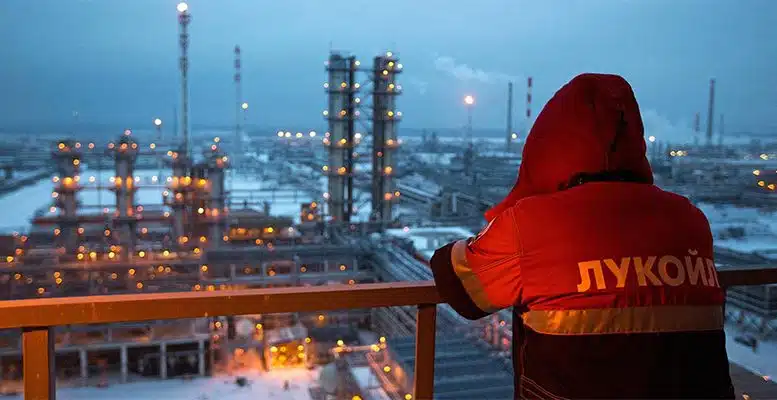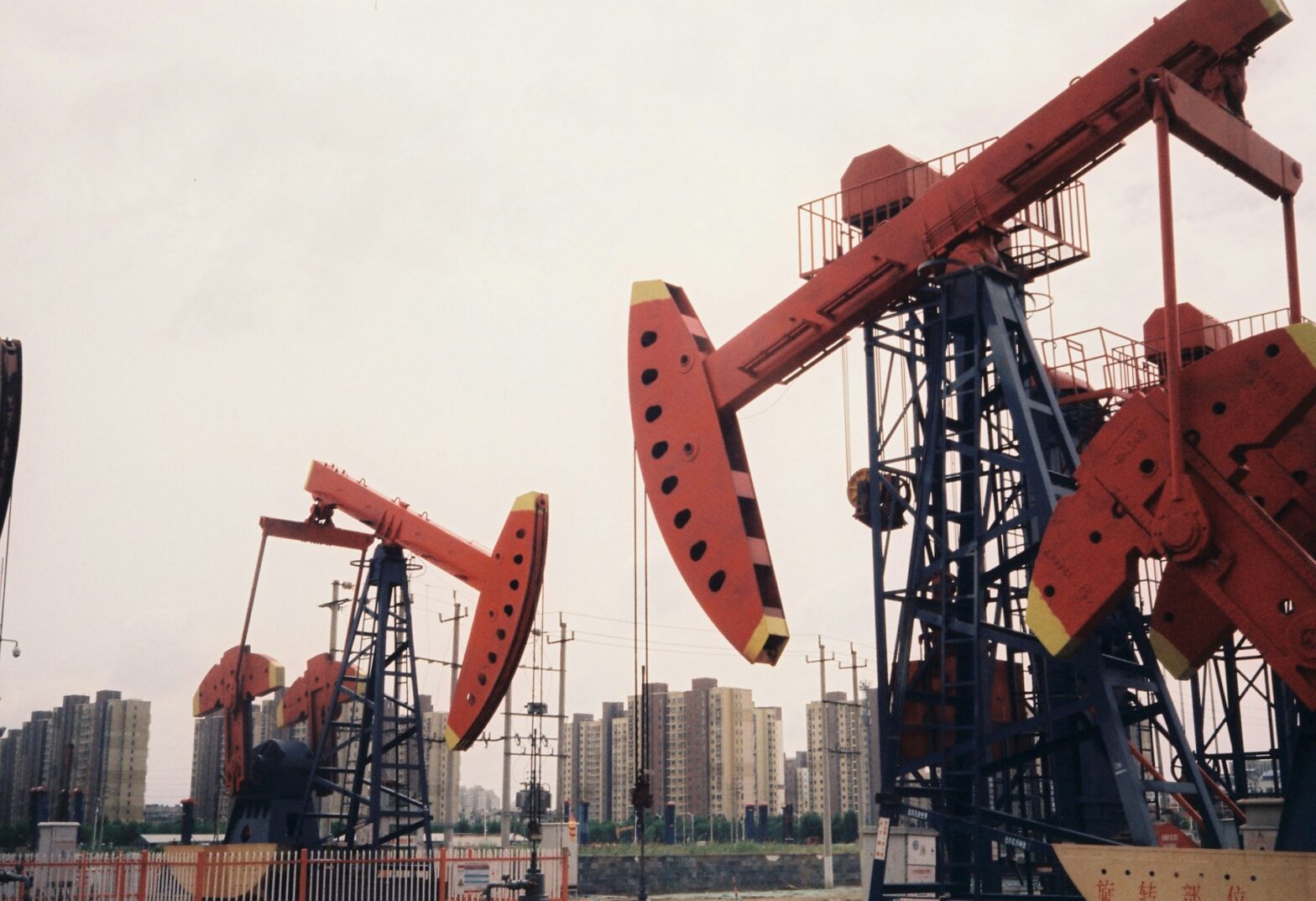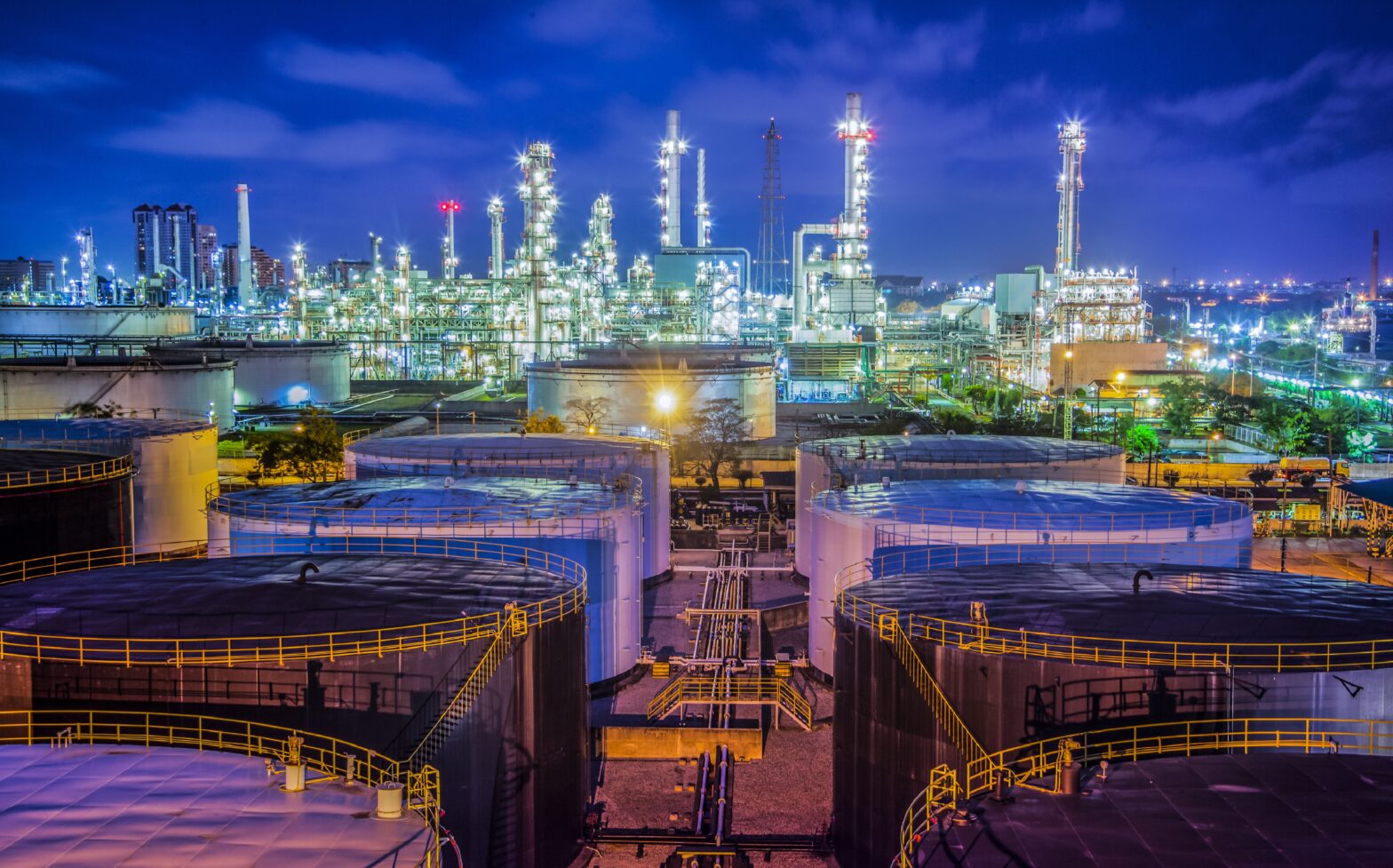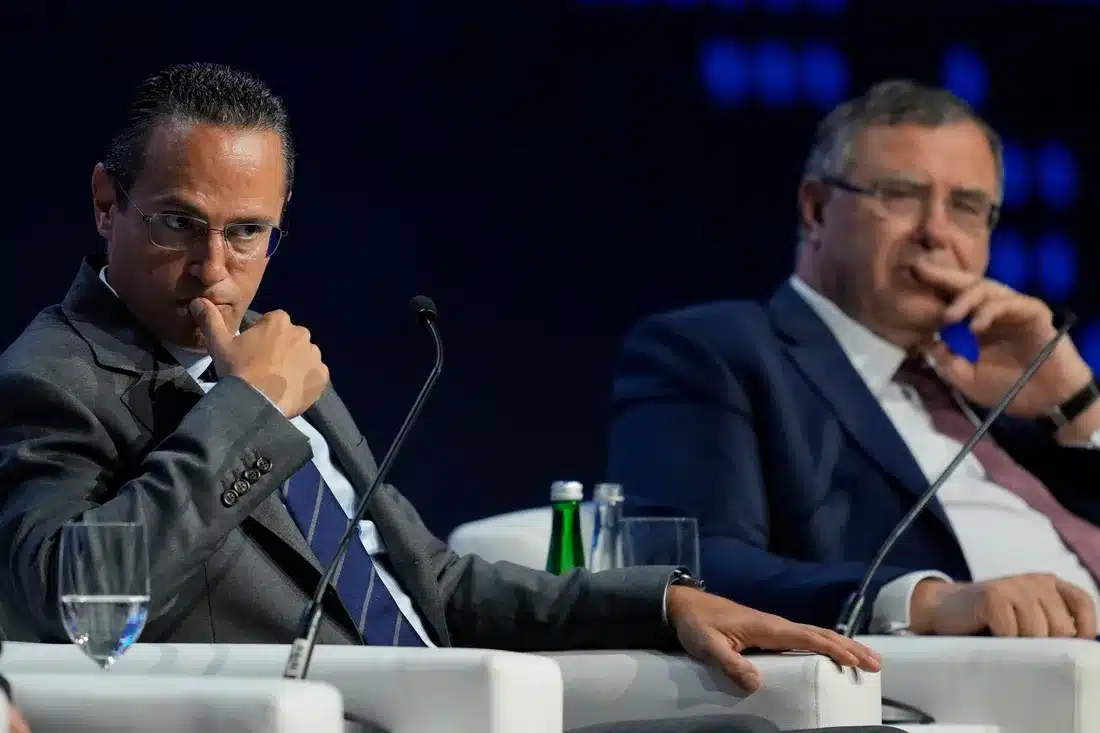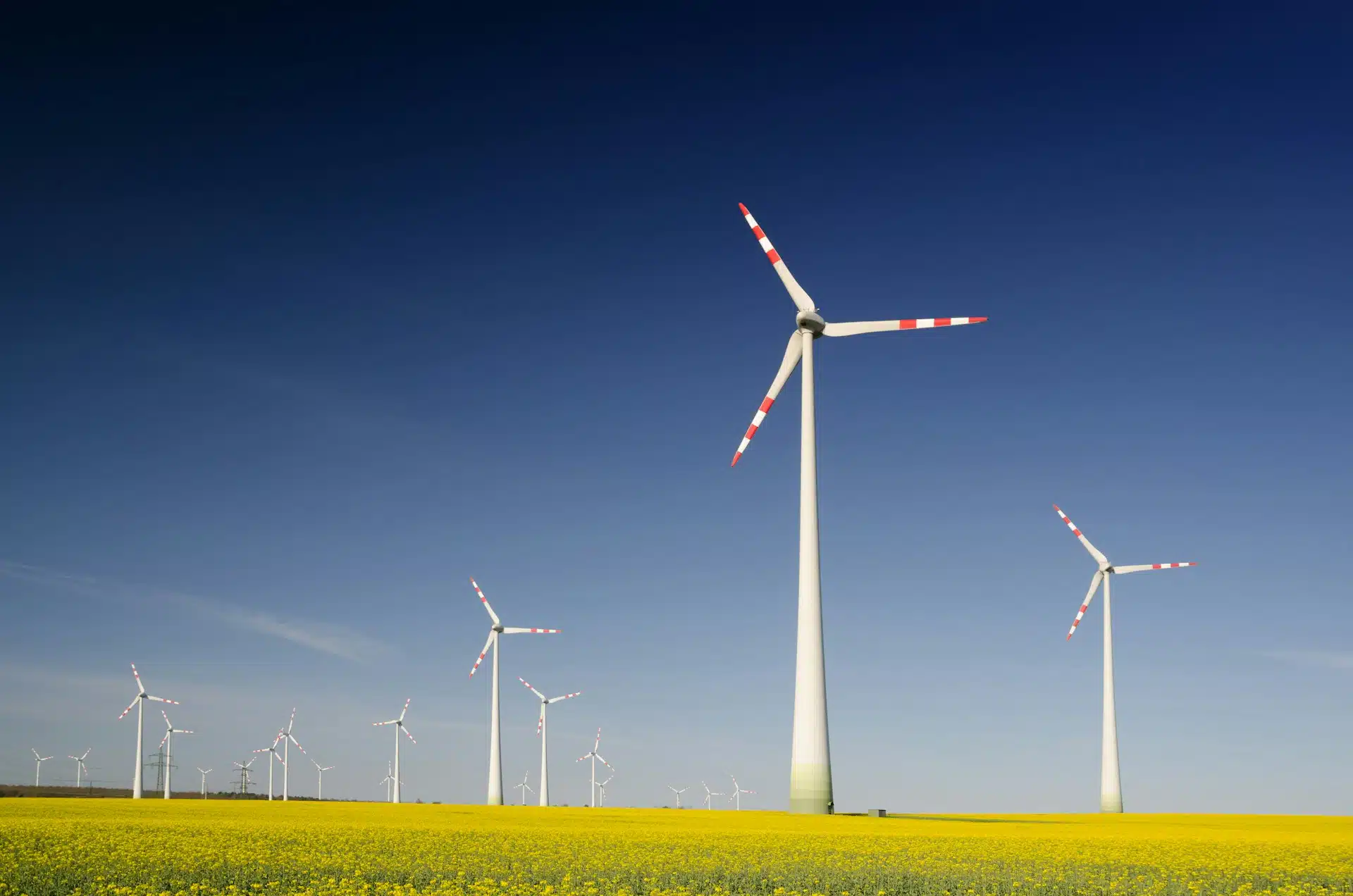Russian energy firms are increasingly establishing a significant presence in Africa’s energy landscape, engaging in various projects across the continent.
Russia’s leading energy companies are capitalising on the continent’s growing energy demand.
Since the full-scale invasion of Ukraine in 2022, Russia’s oil and gas industry has been a critical source of funding for the war.
As a punitive measure against Russia, the European Union (EU)—the largest consumer of Russian hydrocarbons—imposed trade sanctions to cap the prices of Russian oil and gas exports.
As a result, Europe has sought alternative suppliers to reduce its reliance on Russian imports.
The ongoing disturbing trade relation with the US is forcing some European countries to turn to Africa for natural gas and green energy.
But so also is Russia, which seeks new markets in Africa for its energy exports and investments.
Report shows that Moscow is redirecting its hydrocarbon exports to African countries, especially those in the Northern region like:
– Algeria
– Egypt
– Libya
In fact, Russian oil product exports to North Africa have surged, hitting all-time highs in mid-2023, representing a 144% increase from 2022 levels.
Interestingly, European countries have also increased their investments in clean energy projects in the region, which they consider as critical in their pursuits for alternative energy.
Some analysts say the Russo-Algerian relationship could cast doubt on Algeria’s ability to increase exports to the EU.
Algeria, the second largest gas supplier to Europe and one of the top 4 largest crude oil producers in Africa, is a pivotal player in the North African energy market.
It houses two major hydrocarbon export pipelines to Europe and has been a strategic partner for Russian energy firms since the 2000s.
However, beyond North Africa, Russian state-owned energy giants are also making new inroads into other countries in Africa, some of which have committed several long-term agreements with national companies on the energy-needy continent.
Here are four notable Russian companies making strides in Africa and their various interests:
1. Gazprom
Gazprom, Russia’s state-owned gas giant, is actively pursuing opportunities in Africa’s energy market through various strategic partnerships and projects.
In Algeria, Gazprom has been involved in the El Assel project since 2000, operating in collaboration with the national oil and gas company, Sonatrach.
The project has led to the discovery of two gas-and-oil and two gas-and-condensate fields. A joint development plan for the Rourde Sayah and Rhourde Sayah Nord fields has been approved, with production slated to commence in 2025.
Gazprom has also shown interest in Namibia’s Kudu gas field, located offshore approximately 170 km northwest of Oranjemund.
The field, discovered in 1974, is estimated to contain 1.3 trillion cubic feet of proven natural gas reserves.
In 2010, Gazprom and Namcor agreed to establish a special purpose company to take a majority stake in the Kudu gas field.
In November 2024, during the African Energy Week in Cape Town, Gazprom unveiled a pilot project to supply compressed natural gas (CNG) fueling trucks to Tanzania.
These trucks are designed for refueling various vehicles with compressed natural gas and for its transportation, supporting Tanzania’s efforts to enhance its gas infrastructure.
In December 2023, South Africa selected Russia’s Gazprombank as a partner for PetroSA’s refinery project. This collaboration aims to revitalize South Africa’s refining capabilities and strengthen bilateral energy ties.
Gazprom has also shown interest in participating in major pipeline projects, such as the Nigeria-Morocco Gas Pipeline and the Trans-Saharan Gas Pipeline, which are designed to transport African gas to regional and European markets.
Furthermore, the Russian state-owned gas giant has expanded its operations in Tanzania by securing a deal to explore and produce natural gas, focusing on compressed natural gas (CNG) to meet the country’s growing energy needs.
These developments strengthen, not just Gazprom’s foothold, but Russia’s role in Africa’s energy sector, contributing to the continent’s energy development and infrastructure expansion.
2. Lukoil
Lukoil, Russia’s largest privately-owned oil company, has significantly expanded its operations across Africa. The firm engages in various upstream and downstream projects to bolster its presence on the continent.
Lukoil has several upstream and downstream investments in West and Central Africa.
In June 2024, Lukoil acquired a 56.6% stake in three offshore exploration blocks in the Gulf of Guinea from Vanco Energy.
These blocks—CI-101 and CI-401 in Ivory Coast, and the Cape Three Points Deep Water block in Ghana—cover approximately 15,000 square kilometers in the deep-water Tano oil and gas basin.
Lukoil has been active in the Republic of the Congo, negotiating the development of several offshore oil and gas fields.
In September 2024, the company signed a Memorandum of Understanding (MoU) with the Congolese Ministry of Hydrocarbons to jointly develop between five and seven discovered fields, primarily offshore.
In July 2020, Lukoil agreed to acquire a 40% interest in the RSSD (Rufisque, Sangomar, and Sangomar Deep) project in Senegal for $300 million, with an additional potential bonus payment of up to $100 million upon commencement of production.
Lukoil holds a 37.5% stake in the Etinde offshore gas project in Cameroon, partnering with New Age Cameroon Offshore Petroleum Ltd. and Bowleven.
Furthermore, Lukoil has been active in West Africa through its trading arm, engaging in the transportation of diesel off the coast of Lomé and delivering it to countries like Ghana.
In November 2018, Lukoil established LUKOIL Lubricants Africa S.A.R.L. in Morocco to distribute lubricants under the LUKOIL brand across Morocco and other North and West African countries.
Recently, former Litasco employees formed Apix Energy, a Dubai-based trading company focusing on the African market.
Although management denies direct links to Lukoil, this move aligns with Lukoil’s strategy to navigate sanctions and maintain its African operations.
Through these ventures, Lukoil is reinforcing its role as a key player in Africa’s energy sector, contributing to the continent’s energy development and infrastructure expansion.
3. Rosneft
Rosneft, Russia’s largest oil company, has maintained a selective but strategic footprint in Africa’s energy sector, positioning itself to tap into the continent’s vast hydrocarbon resources.
While its operations are not as expansive as other international players, Rosneft’s activities underscore Russia’s broader geopolitical and economic engagement with Africa.
The Block 245-South project in the Illizi basin was the first Russian hydrocarbon investment under Russian ownership in Algeria and the only one in the region with a Russian majority stake.
Rosneft invested a significant $1.3 billion in the development phase, according to a 2007 announcement by Rosneft’s Vice President Nikolai Borisenko reported by Reuters.
However, Rosneft’s most prominent African investment is in Egypt’s Zohr gas field, one of the largest natural gas discoveries in the Mediterranean.
In 2017, Rosneft acquired a 30% stake in the project from Italy’s Eni for $1.125 billion. This stake gave Rosneft access to Egypt’s growing gas market and strategic influence in the East Mediterranean energy landscape.
Through this investment, Rosneft aimed to:
– Diversify its natural gas portfolio,
– Establish a presence in LNG development,
– Strengthen ties with the Egyptian government.
The Zohr field has helped transform Egypt from a gas importer to a potential regional exporter, with Rosneft playing a critical role in this transformation.
While Rosneft hasn’t launched major operations in Mozambique yet, it has expressed interest in LNG and offshore gas projects in East Africa, including in Mozambique and Tanzania.
These countries are home to some of the world’s largest offshore gas reserves, and Rosneft has explored partnerships for future entry.
Rosneft has also explored offshore exploration blocks in Angola—one of Africa’s top oil producers.
The company previously signed agreements with Angola’s national oil company, Sonangol,for cooperation on geological exploration, production, and upstream oil development.
In Nigeria, Rosneft has expressed interest in working with the Nigerian National Petroleum Corporation (NNPC) to explore upstream and downstream opportunities.
However, its activities there remain limited and largely exploratory.
Additionally, Rosneft has entered into agreements with Ghana’s National Petroleum Corporation (GNPC) to develop liquefied natural gas (LNG) for delivery to the port of Tema, highlighting its commitment to expanding its footprint in West Africa.
4. Tatneft
Tatneft, a major Russian oil company, has expressed readiness to invest in Africa’s energy sector, particularly in Libya, through strategic exploration and production initiatives.
The company has shown interest in building oil refineries, engaging in oil and gas production, and supplying crude oil and diesel fuel.
Tatneft has focused its African endeavors on Libya’s Ghadames Basin, located approximately 330 kilometers south of Tripoli.
In May 2023, the company announced a significant oil discovery in this region, with a well yielding a flow rate of 1,870 barrels per day.
This marked Tatneft’s third discovery in the area, underscoring its commitment to enhancing Libya’s oil production capacity.
The company’s engagement in Libya dates back to December 2005, when Tatneft secured a license through an exploration and production sharing agreement with Libya’s National Oil Corporation (NOC).
Tatneft holds a 10.5% interest as the operator of contract area 4/82, while the NOC retains the remaining 89.5% stake.
Beyond its current operations, Tatneft has expressed interest in expanding its footprint in Africa’s energy sector.
During the Russia-Africa Summit in July 2023, Nurislam Syubaev, Tatneft’s Deputy General Director for Strategic Development, highlighted the company’s readiness to offer engineering services for constructing oil refineries, engage in oil and gas production, and supply fuel and crude oil to African nations.
Also, in September 2023, Tatarstan’s leadership, representing Tatneft, engaged with officials from Angola, Mauritania, and Senegal to discuss potential collaborations.
These discussions aimed to explore opportunities for Tatneft to contribute to the development of oil refineries and other energy infrastructure projects in these countries.
Tatneft emphasizes the importance of establishing long-term strategic partnerships that encompass the development of oil and gas fields, creation of pipeline systems, and renewable energy projects.
5. Rosatom
Rosatom is also expanding its footprint in Africa’s energy sector, leveraging the continent’s increasing demand for low-carbon and base-load power.
With over 20 cooperation agreements signed across the continent, the Russian nuclear giant is building not only infrastructure but also influence.
The firm offers funding, technology transfer, and capacity building to African companies and governments.
Rwanda is currently in discussions with Rosatom, Russia’s state-owned nuclear energy corporation, to establish a Nuclear Science and Technology Centre with the potential to construct a nuclear power plant in the future.
The two parties signed a cooperation agreement in 2019, laying the foundation for long-term collaboration.
In Namibia, President Netumbo Nandi-Ndaitwah recently held high-level talks with Russian Deputy Prime Minister Yury Trutnev to strengthen bilateral cooperation on nuclear energy.
The partnership holds significant promise—Namibia is Africa’s largest producer of uranium, while Russia is a global leader in nuclear technology and development.
As tensions mount between South Africa and the United States, particularly over the renewal of a strategic energy pact, Johannesburg is increasingly looking toward Russia and Iran to attract investments aimed at expanding its civilian nuclear power capacity.
South Africa currently operates the continent’s only commercial nuclear power facility—the Koeberg Nuclear Power Plant.
Rosatom’s activities in Africa are part of a broader strategy to offer advanced nuclear energy solutions that help countries diversify their energy mix and achieve sustainable development goals.
The company has signed several strategic agreements across the continent:
– In Guinea-Conakry, Rosatom inked a memorandum of understanding to develop floating nuclear power plants, ideal for decentralized energy access.
– In Mali, the company signed three cooperation agreements to explore the construction of low-power nuclear reactors.
– In the Republic of Congo, Rosatom has also initiated a new nuclear partnership to support the country’s energy ambitions.
One of Rosatom’s most significant African ventures is in Egypt, where the firm is overseeing the construction of the El Dabaa Nuclear Power Plant—the first of its kind in the country.
Rosatom is responsible for the design, construction, fuel supply, and long-term maintenance of the plant. The project is primarily funded by a $25 billion loan from Russia, to be repaid by Egypt over several decades.
In Zimbabwe, the government entered into talks with the International Atomic Energy Agency (IAEA) and Russian investors in December 2024 to explore the deployment of modular nuclear reactors.
This initiative is part of the country’s strategy to tackle chronic power shortages and transition to low-carbon energy sources.
With these developments, Rosatom is cementing its position as a key player in Africa’s nuclear energy landscape,, offering technology, financing, and capacity-building to support the continent’s energy transformation.
6. Zarubezhneft
Zarubezhneft, a Russian state-owned oil company, has been actively expanding its footprint in Africa’s energy sector through strategic partnerships and exploration initiatives.
In August 2022, Sudan offered Zarubezhneft additional oil exploration blocks, enhancing the company’s presence in the country’s petroleum industry.
El Tahir Mohamed Abulhasan, Director of the Oil Exploration and Production Administration at Sudan’s Ministry of Oil, stated that discussions with Zarubezhneft focused on investment proposals, leading to the allocation of more blocks in regions with significant oil and gas potential.
Zarubezhneft has also pursued opportunities in South Sudan.
In November 2018, the company signed a memorandum of understanding with South Sudan’s Ministry of Petroleum to explore four oil blocks.
This agreement encompasses exploration activities and potential collaboration in enhancing oil recovery technologies and infrastructure development.
Recognizing Africa as a key region for growth, Zarubezhneft aims to increase its oil production on the continent to 2 million tons per year by 2030.
The company’s strategy involves entering new countries, studying regional geology, and building relationships with local regulators and contractors.
Beyond its current operations in Egypt and Angola, Zarubezhneft is considering ventures in Congo, Sudan, South Sudan, and Mozambique, with ongoing negotiations to explore investment opportunities.
These investments and initiatives by Russian energy companies reflect a strategic move to capitalize on Africa’s growing energy demand and to establish long-term partnerships that could reshape the continent’s energy landscape.
Africa has increasingly become a strategic priority for Russia, with the country’s expanding footprint in the continent’s energy sector reflecting its ambition to become a major player—while pledging not to interfere in the sovereign affairs of African states.
These energy investments align with Moscow’s broader strategy to:
– Secure long-term energy alliances outside of the West
– Gain access to untapped oil and gas reserves,
– Offer an alternative to Western energy partnerships.

